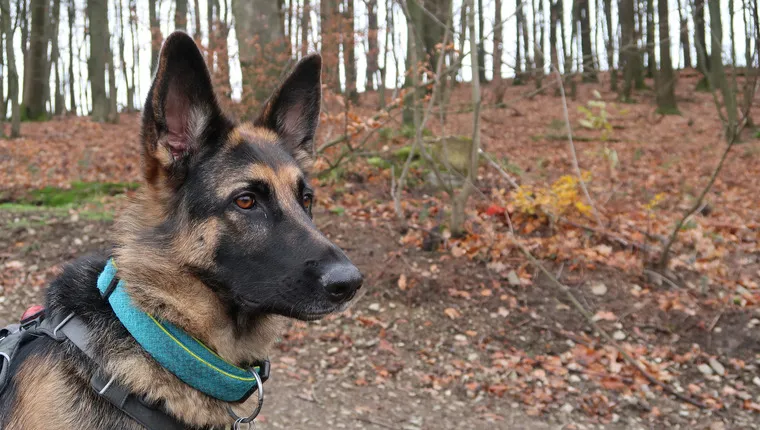Dog ears aren’t just for listening — they’re for talking too! They’re great indicators for telling you what your dog is feeling, but with so many different ear positions, it might be difficult to work things out. Here are the most common ear positions for dogs, and what they might mean.
Neutral position

When your dog is relaxed, their ears sit in a neutral position. Neutral position means that the ears are not pricked forward, drooping down or pasted to his head. Whatever the dog’s breed, they are just sitting easy. Here is a relaxed dog with a neutral ear position.
Attentive or pricked ears

This dog’s eyes look directly at something and their ears are pricked. If you make a funny sound your dog may prick their ears forward and also offer a head tilt.
Alert or concerned ears

This dog has just heard something. They’re on the fence about it and processing the information. Their ears pricked and their mouth is shut. Their ears tell us that they’re on alert.
Changing ear position

This dog may be a bit concerned and working to figure something out. Their ears are changing positions – they’re trying to decide how they feel about their current situation and the sounds around them.
Dropped or pinned ears

The term dropped or pinned ears refers to ears that appear pasted or pinned, or even dropped, and held tight to the dog’s head. Dogs can drop or lower their ears when they are both happy and nervous. It’s important to read the rest of the dog. As for the dog in the imagine, their body is likely wiggly and loose. This dog is using their dropped ears to convey that they are harmless and happy to be social.
Extremely pinned ear position

On the other hand, this dog uses every square inch and muscle in their body to tell us they are nervous and fearful, their ears included. Here, this dog’s ears are extremely pinned back.
Some dog owners believe their dogs like to use “selective hearing” or feel ignored when they call their dogs to come. When this is happening, take a look at your dog’s ears to see what’s he’s saying with them. Maybe they’re not responding because they are keenly focused on something else. Perhaps, they’re not coming to you, because they are nervous that you are mad at him. Pay attention to what your dog’s ears are communicating to you.Save









